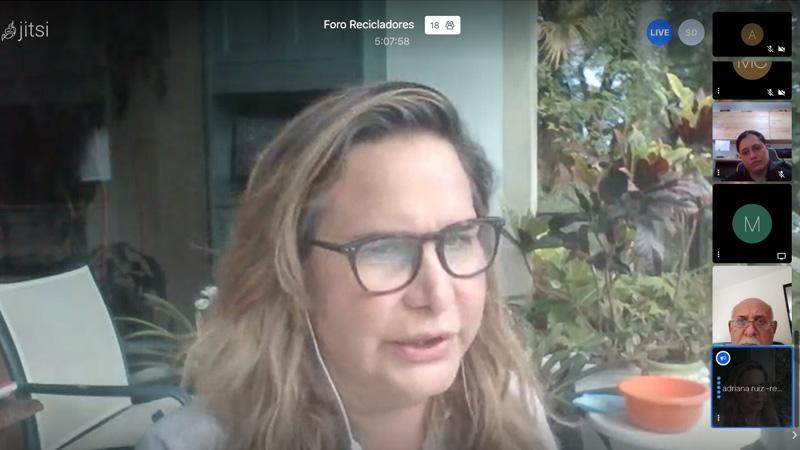As part of a research project investigating the rights of waste pickers in Colombia as entrepreneurs, Dr Maria Granados, Senior Lecturer in Innovation, has been invited to attend a hearing set by the Colombia State Council on 15 March to provide evidence of their struggles as they seek to formalise their work.

During the hearing, Dr Granados will relay evidence from her research from a technical witness perspective, particularly focusing on the struggles of waste pickers during the formalisation process and the impact on their entrepreneurial practice by the Decree 596 of 2016 and its legality. Decree 596 /16 is a rule of law which introduced free competition for waste and residues throughout the country despite the protection to waste pickers practice received by the Colombian Constitutional Court.
In 2009, the court recognised organised waste pickers working in poverty as social entrepreneurs, and thus, ordered the government a special measure of inclusion for them as potential public service providers of city cleanliness services. However, waste pickers still struggle in their formalisation process which has led to the Decree 596 being taken to court, challenging the Ministry of Housing and National Planning on contempt and deviated ways of complying to the courts orders of inclusion and hindering waste pickers in making a living and thriving as truly formal local public service providers.
The evidence Dr Granados will provide is based on her four-year research project funded by the British Academy, Leverhulme Trust and the Global Challenges Research Fund at the University of Westminster. The research explores the struggles of waste pickers to effectively organize and operate this Colombian innovation in law and policy for poverty reduction and structural reduction of the informal economy in Colombia to inform policy and practice.
As part of this project, Dr Granados and her team set up a virtual forum on 28 February with 172 pre-inscribed waste pickers to listen to the waste pickers union and discuss the reasons why some among them have sued the Ministry of Housing and National Planning and are now contributing to the claim for the legal invalidity of Decree 596 of 2016 in its entirety. During the event, the CIVISOL foundation, the pro-bono attorneys of the waste pickers in Bogota and Cali along with other independent waste pickers, discussed the demand ahead of the initial hearing on March 15.
Due to the nature of this challenging case, the researchers will continue to follow the events, document and investigate them further to inform and support waste picker associations, public policy and academia of the challenges of barefoot entrepreneurs, the institutional entrepreneurial change and the impact of COVID-19 on their livelihoods handling waste.
Talking about the hearing and overall project, Lead Researcher Dr Maria Granados said: “We are very honoured to be invited as technical witnesses and testify in the Colombian State Court to present arguments from our research to the process against the Decree 596/16. We will argue how the power of institutions has restricted and hindered the freedom of enterprise of persons in a condition of extreme poverty, in this case the waste pickers. This is a unique opportunity to inform, influence and impact public policy by strengthening the rights of the waste pickers as entrepreneurs and fostering a sustainable way for their community to survive.”


